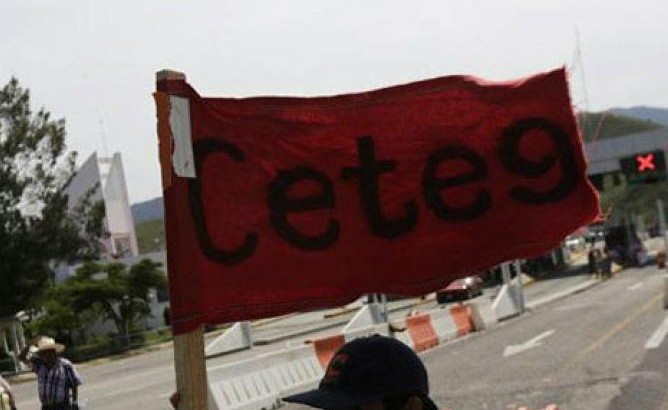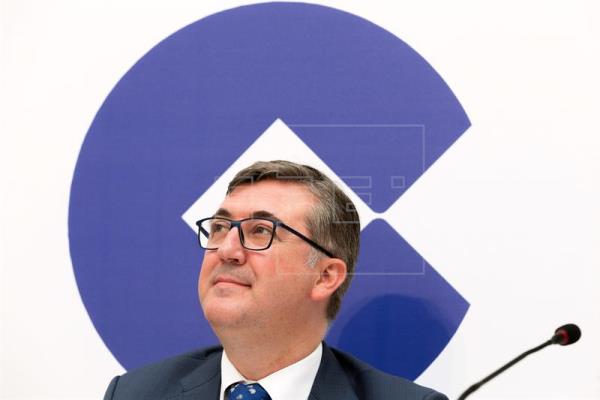¿Debe existir una edad mínima para poseer un móvil? ¿Cuánto tiempo deben pasar los niños al día, jugando o con acceso a internet? ¿Es la tableta la nueva niñera electrónica? ¿Estamos educando bien a la próxima generación de nativos digitales?
España/10 abril 2016/Autor: José Antonio Piñero/Fuente: http://cadenaser.com/
Ante cualquier asunto que aborde la educación de los niños, el término que más se repite cuando hablamos con los expertos es el de responsabilidad. “Los padres somos los primeros responsables de la educación y la salud de nuestros hijos”, subraya el director y cofundador de Padres 2.0, Albert Gimeno. “Tenemos que reparar en qué generación estamos educando de aquí a 15-20 años, una generación de nativos digitales”. Gimeno enumera los puntos básicos que deben tener en cuenta los progenitores, tutores y educadores a la hora de implementar estas nuevas herramientas en la vida de los más pequeños.
HIPERCONECTADOS
Por edades, el 72% de los menores de 8 años utilizan móviles y tabletas a diario. Por encima de los 10 años, el porcentaje sube al 90%. Hasta aquí, los niños que supuestamente utilizan el dispositivo de los padres. A partir de esa edad, el 67% de los menores entre 10 y 15 años ya tenía un teléfono móvil en propiedad a finales del año pasado.
Fuente: INE / FAROS
También es importante elcontexto en el que el menor va a consumir determinada información. Básicamente, “no es lo mismo que –por ejemplo—tenga acceso a la red estando solo en su habitación o si se trata de una actividad que va a realizar en grupo con sus amigos”.
Y, en tercer lugar, nunca debemos olvidar que son niños y que, como tales, su grado de madurez nunca va a estar preparado para asimilar todo lo que hay en internet. El mejor filtro natural radica en los padres, que al fin y al cabo deben ser los que están más preparados para fijar los límites, tanto del contenido como del contexto.
El caso taiwanés
Resumiendo, los responsables son los padres en todo el mundo… menos en Taiwán. Es la excepción que confirma la regla. Uno de los principales fabricantes de tecnologías de todo el planeta decidió el año pasado prohibir el uso de móviles y tabletas a los niños menores de 2 años. El razonamiento es médico: las pantallas de los dispositivos electrónicos emiten una intensidad de luz perjudicial para los ojos de los más pequeños, cuyo cristalino aún está formándose y no es capaz de filtrar esa intensidad como los adultos. El progenitor cazado con el niño de menos de 2 años mirando el móvil (entendemos que en un lugar público, porque cómo hacerlo si están en casa), tendrá que enfrentarse a una multa de 1.400 euros.
En España, se estima que un 40% de los niños menores de 2 años utilizan smartphones y tabletas de manera habitual. Aquí el peligro radica en que se convierta en un chupete digital para tranquilidad de sus padres, pero tenemos que ser conscientes de que el crío está en pleno desarrollo mental. La psicopedagoga infantil Mar Sánchez Marchoriseñala que “el niño, hasta los tres años, está atravesando un periodo sensomotor. Es una etapa que tiene que pasar como cualquier otro, saltando, corriendo y jugando, y no quieto con un aparato tecnológico entre las manos”.
Desde los 3 años
Pero tampoco podemos cerrar los ojos ante el hecho de que son nativos digitales y que van a vivir en un futuro de pantallas y, quizá, de realidad virtual. Por este motivo, Sánchez Marchori recomienda que “estos pequeños utilicen los móviles en pequeñas dosis, algo así como una hora diaria, pero desde los 3 años y hasta que acabe el ciclo de Educación Infantil siempre con el acompañamiento de los padres”. Al jugar con la pantalla, el pequeño se limita a actividades en dos dimensiones, en los que se pierde el desarrollo de otros sentidos al inhibir el movimiento.
Con todo, Sánchez Martori recomienda a los padres utilizar la psicología evolutiva en cada momento: “de un niño, hasta los 8-9 años, nunca saldrá de él que deje de jugar con un videojuego o con el móvil porque lleve un determinado tiempo, una o dos horas”. Una vez más, los límites deben salir de los padres.
Desde los 9 años
De la opinión de los expertos, interpretamos que una cosa es el acceso temprano a los dispositivos móviles (entre los 3 y los 9 años) y el acceso a la red a través de estos dispositivos. Ricard Martínez, abogado experto en Privacidad, reconoce que “cada vez se conectan habitualmente a edades más tempranas, desde los 9-10 años. Como norma general, la marca que se ha impuesto mediante la Ley Orgánica de Protección de Datos está en los 14 años, una norma que se ha aplicado al mundo de internet porque, desde entonces, el menor consiente el tratamiento de la información que lee y publica”.
¿EDAD MÍNIMA?
¿Debe existir una edad mínima para poseer un teléfono móvil? Un sondeo elaborado por la ONG británica Internet Matters, con respuestas de 1.000 padres de niños con edades comprendidas entre los 8 y 11 años, revela queel 84,6% de los encuestados creen conveniente que exista esa edad mínima. De ellos, el 26% piensa que 10 años es la edad ideal.
Los expertos consultados en este reportaje rechazan la idea de que esa edad mínima deba ser impuesta por ley en nuestro país, que el equilibrio del tiempo on line y off line debe depender de los padres. La implantación educativa de las nuevas tecnologías será paulatina y acorde con el criterio de los padres. Cada cosa a su tiempo. Nadie entendería que un niño pasara horas en la guardería pegado a una pantalla. Los niños tienen que ser niños y aprender jugando.
También en este caso, Martínezrecuerda que “la responsabilidad civil recae siempre en los padres.Si consumen contenidos de manera ilegal, el típico pirateo, o cometen alguna infracción on line, son los progenitores los que tienen que responder ante la justicia”.
Es un escenario posible, pero siempre hay otro peor: que el menor se convierta en víctima de algún delito cibernético, como elciberbullying (acoso a través de medios telemáticos) o el grooming(acoso y abuso sexual a través de las redes sociales). Con todo, el letrado lamenta que la legislación aún vaya por detrás para poder definir nuevos sistemas de protección al menor.
Fuente de Noticias:
http://cadenaser.com/programa/2016/04/08/hora_14_fin_de_semana/1460136953_565769.html













 Users Today : 63
Users Today : 63 Total Users : 35459969
Total Users : 35459969 Views Today : 78
Views Today : 78 Total views : 3418543
Total views : 3418543